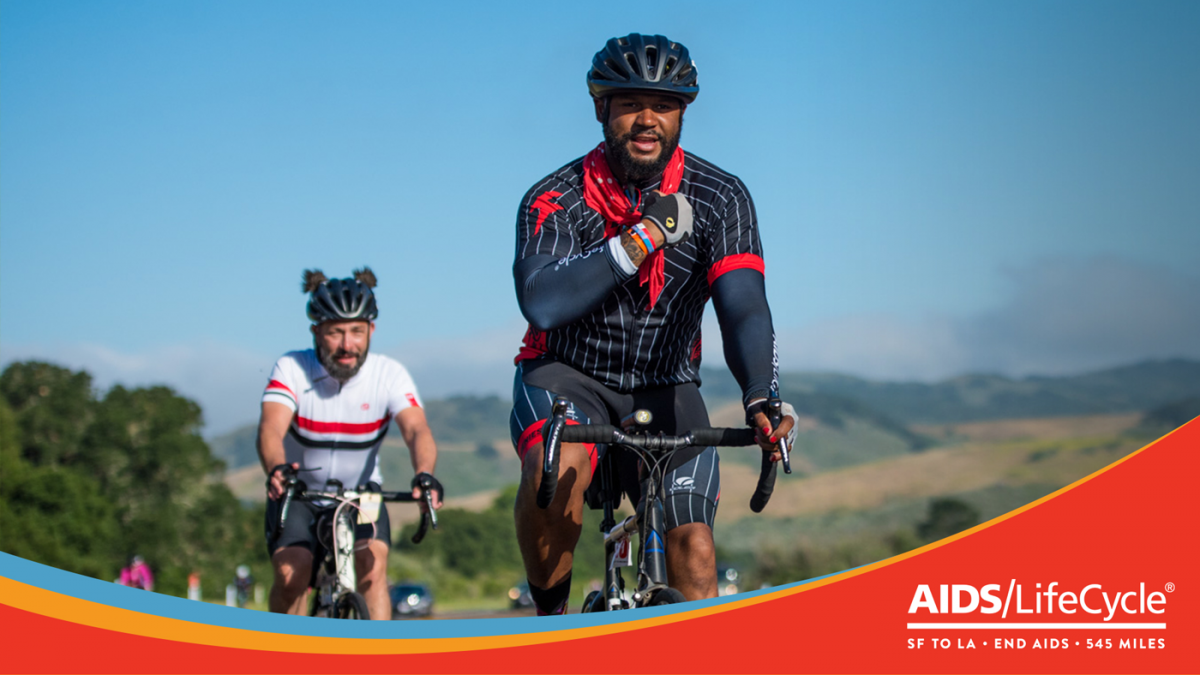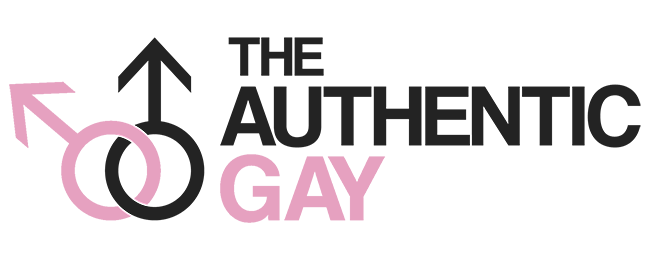AIDS/LifeCycle: Why I Ride

The following article was written by our guest contributor, DG.
Editor’s Note: The author of this piece wishes to remain anonymous so as to maintain the integrity of his piece and it’s vital message that we are not defined by our HIV status.
I made a video clad in a tight, fluorescent cyclist jersey cropped just above my lazy stomach to announce on social media that I would be riding in the AIDS/LifeCycle this year. All the requisite elements were showcased: an LA beach as the backdrop, my disinterested bike, a few quippy donation how-tos, and the perfect iPhoto filter to soften the awkward lines on my face caused by stress, age, tequila, early-college drug use that, okay, fine, continued well into my mid- thirties, and unwanted side effects from Gwyneth Paltrow’s Goop Lab. As I staged the video, making sure my hair was sweeping to my good side whilst billowing in the privileged California air, it occurred to me that I really had no clear answer as to what this ride really meant to me. If asked, I’d say I was riding for the physical challenge, and a sense of camaraderie with other sober men going commando in skintight bibs.
I grew up in a small Texas town right outside of Austin; you know, the kind of town that boasts a Walmart where people walk barefoot inside, cops that shoot you for not being white, parents who respond to their effeminate son’s request for Madonna’s Immaculate Collection on VHS by preaching that all gay people will die of AIDS before burning in the depths of eternal hell, and the occasional hippie high school teacher that whispers “run, sweetie!” into your ear at graduation because they see potential in you. High school carries a lot of great memories for some, but for me, it was truly cow shit, Republican hell.
After I posted my Instagram-worthy donation video, I got an alert on Messenger from a former high school acquaintance. We’ll call him Dave, because that’s his name. Dave was always pretty kind to me, not an unfortunate-looking kid, not adorable, popular because he threw a football well, and always remained deeply rooted in his conservative, Christian values. As an adult, Dave’s modest social media presence represents him as a one-issue voter, and a proud Trump supporter with daily status updates like, “THEY CAN’T HAVE OUR GUNS, VOTE TRUMP!” and “PROTECT THE SECOND AMENDMENT. TRUMP!” scattered throughout the Rolodex of his Facebook wall. I think it also safe to assume that Dave likes to hunt. Anyway, I digress.
I opened the message and began to read what I can only imagine was Dave’s attempt at a thoughtful, progressive, and compassionate response to my video, exercising his due diligence for a gay man he has known since we were kids.
“Yo, you have AIDS bro? Dude you never told me,” Dave lamented, continuing to pay his respects. “Shit man, are you gonna die? “Sorry, I hope I’m not being rude.”
DISCLAIMER: This dialogue is a translation of a poorly written, grammatically butchered, misspelled version of Dave’s actual dispatch, but having known him for many years, I am confident the intended meaning has been deciphered accurately.
I was instinctively catapulted back to the shame I carried as a teenager, to the judgment and visceral fear of being attracted to other boys, and to enduring the panic of what my father said it would mean for me to be a faggot. When I first began experimenting, I spent endless hours on my futon staring obsessively at the ceiling in big, gay tears after having licked a man’s testicle. In the six months I’d have to wait to get tested, I came to accept that because of that shameful, ungodly act of testicle-licking, I would be rendered unlovable, rightfully condemned to die a horrible, AIDS-related death, scarlet-lettered, and hung from the gallows of an unrelenting hell without air conditioning.
I quickly started to write my response to Dave, correcting him with razor sharp focus, letting him know I am NOT (fingers trembling) HIV-POSITIVE! and that I am riding to support the community. As I urgently sought the words to pardon myself, my texting fingers stalled and a different type of shame was present, one I had never felt before. The shame of feeling the need to distinguish myself from some of the most powerful people in my community. People I’ve called heroes. The shame of feeling compelled to categorize my status as if it made me any different than someone living with HIV.
I intuitively knew that by correcting Dave’s assumption of my HIV-status, I’d be trying to redeem whatever judgment he had of me, and redeem whatever buried, subconscious judgment I had of myself by allowing someone to believe I was positive. Trying to change or defend against that belief would be an unyielding way of contributing to the ongoing stigma in today’s society that we so desperately need to eradicate.
Dave’s assumption of my HIV status is irrelevant to the cause, and disclosing it to him doesn’t add a dignified, protective armor against my sexual shame. Because of drugs like PrEP, I have been afforded the ability to be more sex positive, to be freer in my sexual identity without fear and stigma. Because of the medical resources available to us, I have been able to choose a life partner based on love without his HIV status being a factor in that decision.
My HIV status is irrelevant to my purpose for riding. I explained to Dave that anybody, including he, could ride to help raise money for HIV/AIDS research, care, and prevention, and that the AIDS/Lifecycle is an opportunity to make a difference and educate others regardless of their gender, race, sexual orientation, creed, or HIV status.
HIV/AIDS is no longer a death sentence. I ride because I love being a part of the LGBTQ+ community. I ride because I recognize and am proud of how far we’ve come since 1981 but wish to be a part of the distance we still need to travel. I no longer need to announce my HIV status unless I’m sharing blood or semen with someone. Period. When one feels the need to unnecessarily volunteer their HIV-negative status only to make themselves or someone else feel more comfortable, it does not deserve a badge of honor. It further continues the stigma.
The real badge of honor belongs to those lives that have been lost over the last four decades. The real heroes are the people like Mike Petrelis, Maxine Wolfe, Peter Staley, Garance Franke-Ruta, and organizations like ACT UP, and WHAM! who spoke out against the Reagan administration. The real heroes are the activists who protested outside the FDA building, fighting for the research that would eventually lead to the effective drug treatment and preventative medicine we have today. From HAART, to one pill a day, to PrEP, the real heroes are the men and women who lost their lives fighting when HIV/AIDS was a plague, and also the men and women who survived it.
They’ve been called the “lost generation,” those innumerous heroes that we millennials often overlook because we live in a time when treatment and prevention are so effective, that it’s been easy to forget those whose shoulders we stand on.
Those heroes. Those fighters. Those survivors.
I am riding for you.
